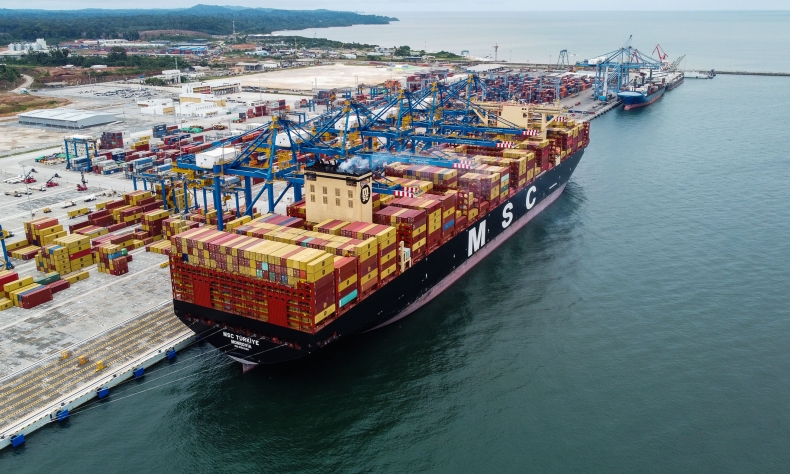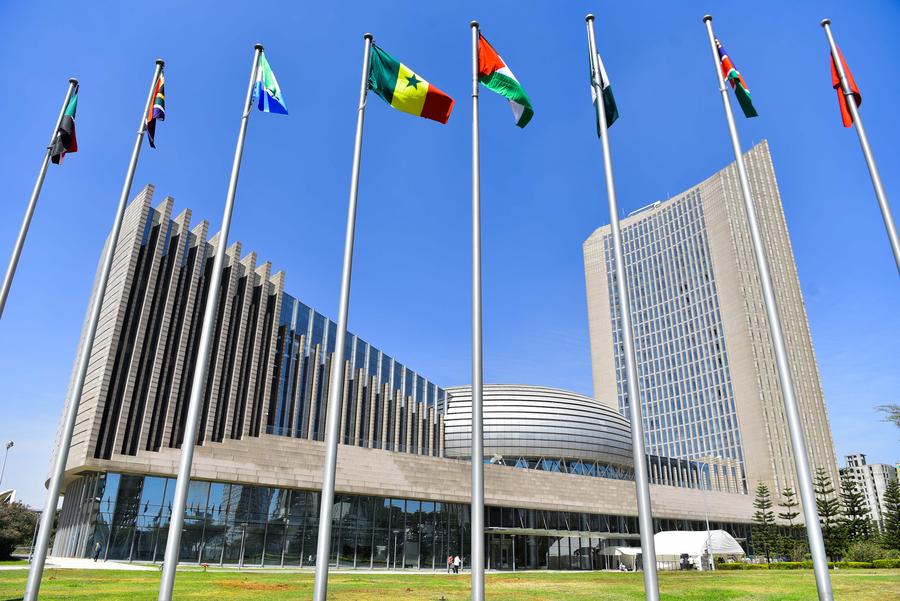Elevated Standing

Supported by China, Africa strives to become a strong, resilient and influential global actor.
As Africa marks a decade since the adoption of Agenda 2063, its bold and ambitious seven aspirations have positioned the continent as a strong, united, resilient, and influential global player and partner.
Reaffirming its Pan-Africanism and African renaissance plan, aspiration seven of Agenda 2063 underscores the importance of Africa’s unity and solidarity in the face of major challenges emanating from the changing nature of globalisation, climate change, and economic and political environment. Due to these challenges, many countries lag in terms of investment, living standards, per-capita income, infrastructure, and poverty alleviation. These countries’ abundant natural resources are transforming the economies of other continents, especially those that colonised the continent.
A vision for global engagement
Despite these challenges, Africa initiated a process of integration around the beginning of the 21st century through the formation of eight regional economic communities (RECs). These are the Community of Sahel–Saharan States, Union of the Arab Maghreb, Economic Community of Central African States, Common Market for Eastern and Southern Africa, East African Community, Intergovernmental Authority on Development, Economic Community of West African States, and Southern African Development Community.
Strategically, the RECs under the larger umbrella of the African Union (AU) provide a platform for the implementation of Agenda 2063 aspirations while positioning Africa as a formidable player on the world stage. These communities have elevated the status of the AU and its individual member states on the global stage, enabling them to join or play more important roles in global multilateral institutions and initiatives such as the United Nations (UN), the World Trade Organisation, the International Monetary Fund and World Bank, the G20, BRICS, the World Health Organisation, and the AU partnerships with global countries like China. At the UN, Africa holds three non-permanent seats on the Security Council, becoming a key player in fostering global peace and security.

Similarly, in 2023, the AU was officially made a permanent member of the G20, representing the continent’s voice on global economic and development issues. This milestone has further enabled the AU to actively participate in shaping global governance policies through securing a seat at the decision-making table rather than remaining on the periphery. In addition, access to the G20 economies by the AU has enabled the African Continental Free Trade Area to explore partnerships and markets that will accelerate the growth and development of a continent with a population of about 1.4 billion that is set to double by 2050 and make up a quarter of the planet’s people.
China-Africa partnership
Africa’s true transformation into a strong, united, and influential global player and partner is being driven to a great extent by its deepened, all-weather strategic partnership with China. This has been realised through China-Africa cooperation under various initiatives and mechanisms including the Forum on China-Africa Cooperation, the Belt and Road Initiative, the Global Development Initiative, the Global Security Initiative, the Global Civilisation Initiative and the Outlook on Peace and Development in the Horn of Africa. These greatly complement and support the goals of Agenda 2063, Africa’s development blueprint to achieve inclusive and sustainable socio-economic development and the UN’s Sustainable Development Goals.
China-Africa cooperation has strengthened high-quality sustainable development, ensuring that no country or society is left behind. This exemplifies the true meaning of building a community with a shared future for mankind. China-Africa relations have also transformed over time. China has become a source of the most affordable funding to Africa, significantly accelerating the continent’s recovery from centuries of colonial domination. Guided by Xi Jinping Thought on Socialism with Chinese Characteristics for a New Era, China-Africa cooperation has become one of the greatest stories of the 21st century, making the destiny of both civilisations inextricably linked.
Tangible outcomes
Furthermore, China-Africa cooperation has facilitated the construction of more than 100,000 km of roads, 10,000 km of railroad, 1,000 bridges, and approximately 100 ports. These projects have enabled Africa to become a fulcrum and frontier of development. Similarly, the already completed infrastructure projects have promoted regional integration and positioned the continent as an influential partner.

For example, the Addis Ababa-Djibouti Railway has connected landlocked Ethiopia to the maritime trade routes of the Gulf of Aden and the Red Sea. The Kenyan Standard Gauge Railway, which is anchored on the East African Railway Master Plan, will link the countries of Tanzania, Kenya, Uganda, Rwanda, Burundi, South Sudan, the Democratic Republic of the Congo and Ethiopia, once fully completed and operational. Goods and services will be easily transported from one country to another in a safer, faster, and cost-efficient way. This will lay a solid foundation for Pan-Africanism where Africa not only shares a common history, but also a common future.
China has also provided the most affordable development assistance to the continent. Billions of dollars have been given either as concessional loans or preferential export buyer’s credit to African countries. This has led to a new global focus on Africa, normally referred to as the new scramble for Africa. This funding from China has also addressed the inequalities inherited from colonial times and put Africa on a path of sustainable development.
Further, China has helped to reduce the trade imbalances that African countries have been complaining about for decades by ensuring the continent moves away from extractive exports to industrial goods trade. The efforts made towards raising industrial goods trade promote African industrialisation and the advancement of its manufacturing sector, which automatically leads to more employment opportunities on the continent.
Indeed, as the continent embarks on the Second 10-Year Implementation Plan of Agenda 2063, China stands out as the only global partner that has consistently demonstrated the capacity to support Africa’s transformation into a stronger, more united, resilient, and influential global actor. This partnership will flourish despite the shifting global landscape marked by rising politics of isolationism, protectionism, nationalism, and persistent inter- and intra-state conflicts across Africa and beyond.
The author is Executive Director of China-Africa Centre, Africa Policy Institute, Kenya.
 Facebook
Facebook
 Twitter
Twitter
 Linkedin
Linkedin
 Google +
Google +










